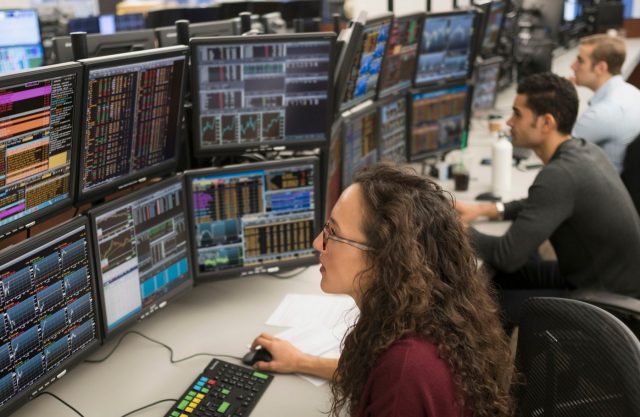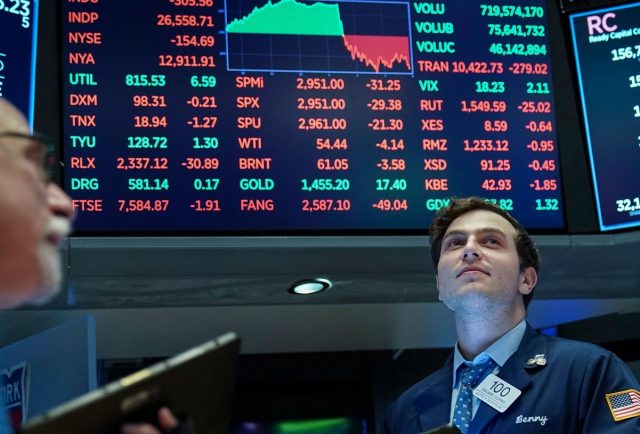
The perspective of earning money due to exchange transactions or investments attracts a wide audience of users. Unfortunately, the lack of skills, incorrect assessment of opportunities, the choice of an unreliable broker often lead to the fact that a novice trader loses his capital or faces negative profitability.
What do brokerage companies do?

A simple user cannot register on the exchange and start making deals with exchange participants. He has no capital to interest direct market participants, as well as no licenses, permits, accreditations to conduct financial transactions of such ‘serious’ level.
In simple terms, a brokerage company is an intermediary that works with ordinary users and the exchange (currency, stock exchange, etc).
A trader who is engaged in speculative transactions or investments tries to make money by making deals. He observes the trends of the market thanks to the signals sent by the broker. Then he creates orders, following his strategy, for the conclusion of a particular transaction. And the broker executes those orders.
The broker takes a certain amount of money from the trader for his services – so called commissions. They can be fixed, depend or not depend on the number of transactions during the day, the amount of money spent or the type of transaction.
Broker selection criteria

There are several factors that an “ideal” broker must have. First, it must be undoubtedly reliable. Unfortunately, there are many scammers and companies in the brokerage market that are only interested in deposits from their clients.
Secondly, the broker must be profitable. Since he takes commissions for his services, the broker’s pricing policy affects the potential profitability of trading.
Thirdly, the broker must be user-convenient. The broker should have a functional and modern platform for exchange transactions, tools for fundamental and technical analysis and other tools traders usually use to predict trends and monitor the market.
How to determine the level of reliability of a broker

To get started, visit the official website of the organization. Check licenses and other legal information. The broker must be licensed for exchange operations on the particular exchange you are interested in, as well as in your country. These licenses are usually issued by the central bank or other financial regulators in a particular country.
If you find licenses and other documents on the broker’s website, be sure to double-check their accuracy in independent registries. Unfortunately, the broker’s official website is not a reliable source of information, it may offer you ad (fake) or not up-to-date info.
Find out where the broker keeps his clients’ money. If he transfers deposits to overseas offshore accounts, this could be an additional risk factor. If a disputable situation occurs, the company goes bankrupt, then it could simply block your trading account, and you would not be able to get your money back legally. Even if you’ll try to sue such an offshore company.
It is advisable that the broker is not interested in your trades. If he is interested in the outcome of the transaction, then the broker may falsify the results or deliberately create conditions for your losses.
Finally, check the broker’s domain registration period and company registration period in the official registries. The more the broker works, the better. Try independent services like WhoIS to check domain registration.
Is the broker profitable? Or not?

This factor is individual and depends on several factors. For example, how you are used to replenishing accounts on the Internet and what payment systems you use. If the broker does not offer payment systems suitable for you, you will have to use the services of exchange portals. It is not always convenient and profitable because of time-loses and additional commissions.
Also check what fees the broker charges for their services. As mentioned above, the size and type of commission charge depends on the number and type of transactions, transaction amounts and other individual factors. Perhaps a particular broker will not be very profitable for you, and you will pay him extra money for each operation. Check it before making your first deposit or even registering a ‘demo’ account.
Be wary of promotions, bonuses and ‘special exclusive offers’. They are often used to attract an audience of novice and naïve traders, and the conditions of these offers are not always as beneficial as it seems at first sight.
Whether the broker is convenient or not

You usually enter into transactions on the exchange through the trading terminal. This software is distinguished by functionality, ease of navigation and the range of tools presented.
Different brokers use different trading software and different versions of the particular software. These can be popular third-party programs or specific brokers’ own programs.
It is desirable that the selected broker has auxiliary tools for market analysis and trend forecasting in the trader’s personal account. For example, expert articles and analytical materials, a summary of the latest financial or political news, tools for technical analysis, and so on. If it has materials to improve trading skills – it’s one more beneficial factor.
How to choose a broker

First, do your own research. Study the information in the public domain, visit the official websites of the companies. We recommend that you double-check all the information, as there are a lot of advertisements and deliberately false information on the Internet.
Secondly, check the information in the ratings of international broker agencies. Usually only large brokers with all needed legal licenses are included in such ratings. Nevertheless if you are interested in cooperation with a trusted broker check the rating.
Third, visit sites with independent ratings, reviews, and expert reviews. On such sites, you can find both information from ordinary users and experienced traders who will tell you about the advantages and features of cooperation with this or that broker.
One of these sites with its own broker rating, as well as reviews and reviews: tradersunion.com.
Examine all information found on the Internet with skepticism. Remember that there are a lot of advertisements on the Internet, as well as fake positive or negative reviews.














